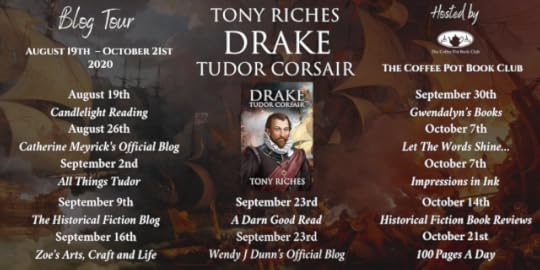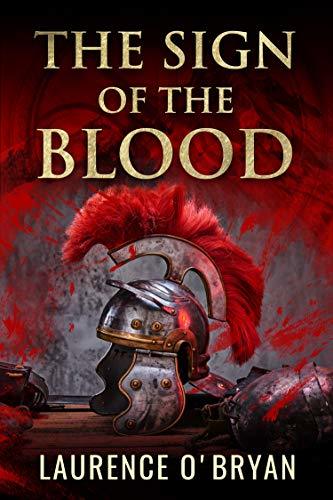Mary Anne Yarde's Blog: The Coffee Pot Book Club , page 65
October 8, 2020
Have a sneak-peek between the covers of Zara Altair 's fabulous book — The Roman Heir #HistoricalFiction #HistoricalMystery @ZaraAltair
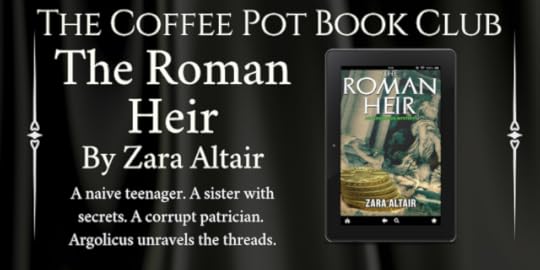
The Roman Heir
By Zara Altair
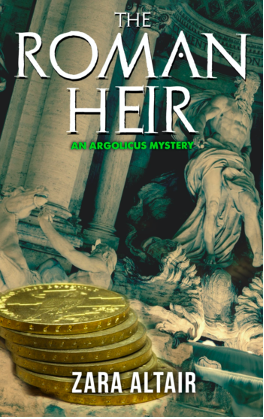
A naive teenager. A sister with secrets. A corrupt patrician. Argolicus unravels the threads.
When Argolicus leaves Rome to retire to his estate in southern Italy, his powerful friend Boethius asks a small favor, deliver a book to a young man in Ostia. When he arrives in the dying resort town, he finds chaos and sorrow in the villa. The young book lover’s father was viciously murdered just hours before and the young man asks for help.
With just days to find the killer before his ship leaves port, Argolicus must probe the politics of the dying town. But with every investigation he makes, the circle of possibilities grows. Success seems out of reach and he must disappoint the family, until a ruffian accosts him and pieces fall into place.
The Roman Heir is the third book in the Argolicus mysteries set in Ostrogoth Italy. If you like a puzzling mystery and rich historical detail, you’ll love The Roman Heir.
Buy The Roman Heir now to go back in time when murder wasn’t a crime!
Excerpt
The words were not as cold as the Roman winter air, but they stung Argolicus.
“You see,” Boethius said, leaning toward Argolicus in a confidential manner, “Rome is a closed community. When someone like you whose family lineage is not from one of the great families of Rome and as a newcomer attempts to take on a centuries-old Roman position, you set yourself up for strife. You are wise to retire, go back to your provincial Bruttia and live as local nobility.”
Argolicus watched from the palatial villa on top of the Caelian Hill gentle snowflakes fall on the city and the forum below. He stood on a balcony where Boethius had led him just minutes before. Behind them loomed a grand study filled with manuscripts and books.
Boethius carefully peeled an apple, the skin curling off onto the floor at his feet. Argolicus knew everything Boethius was saying and they echoed his reasons for leaving. He also knew Boethius, so he waited for him to get to the point.
“The same talents that make you a good judge,” Boethius continued, “hamper your political power. You read people, you consider all possibilities, you listen carefully to all sides, you weigh outcomes. In politics you must make a decision, move quickly, ignore repercussions, and strike.”
Argolicus recognized his political failings and felt the sting of being blocked on more than one occasion by the powerful families of Rome and the prelates of the Church.
“Go back to your home, enjoy your studies.” Boethius said as he cut off a small section of apple. One of the richest men in Rome, Boethius loved books as much as Argolicus, perhaps even more. “I have a parting gift for you.” He bent to the table and lifted a book, handing it to Argolicus.
Argolicus looked down at the small book, almost a pamphlet, but covered in leather.
“I translated it,” Boethius said, as he looked down at the book. “Aristotle’s Categories. I know you are one of the few left who read Greek, but I thought you might like it for your collection.”
Truly pleased, Argolicus smiled. “Thank you. I will read it in solitude without the endless sessions of reading Greek aloud.”
“Ah, Nikolaos,” Boethius said, reading Argolicus’ mind, “he is a taskmaster.” Argolicus’ tutor and lifelong companion waited for Argolicus somewhere in the villa.
“He is,” Argolicus said smiling, “but without him my Greek would suffer.” The two men stood looking out over a wintry Rome.
“I’m wondering,” Boethius said, “Are you going by ship? Or by land?”
“Oh, quickly, by sea. Portus to Squillace.”
“Then I’d ask you for a favor.”
“Yes?”
“I have another copy for a young scholar. I’m wondering if you could deliver it for me. Books are so precious, I dislike just sending them. Plus, you would like the lad. He loves to read and think.”
“Why? Where is he?”
“He lives in Ostia in the old family villa, a large domus in the center of the city. His father is a friend of Symmachus and I thought…”
Ah, here it was politics. Even as he was leaving Rome one last push.
“Of course, I’ll take it. We were leaving in four days, but I could leave tomorrow and stop to deliver the book. What’s his name?”
“Servius Norbanus Philo. He is the son of Pius.”
Argolicus knew this errand tied him to Roman aristocracy, another wealthy and old family. Servius Norbanus Pius had inherited a shipping business that had grown with the stability of King Theoderic’s rule. In Rome, his home was near Boethius on the Caelian Hill, but one of the reasons for his success was his constant presence in Ostia near the huge shipping center Portus to personally oversee the shipping business. “Philo,” he said. “I shall make sure he receives your gift.”
Pick up your copy of
The Roman Heir
Zara Altair
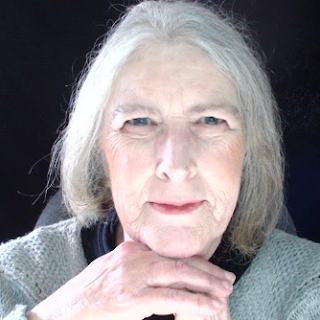
Zara Altair writes traditional mysteries set in Ostrogoth Italy. Meet Argolicus the Roman patrician who thinks his way to finding a killer. The Argolicus Mysteries are The Roman Heir, The Used Virgin, The Peach Widow, and The Vellum Scribe, with more on the way. A mystery lover since childhood, she has written about writing for a number of publications, including ProWritingAid and International Thriller Writer. She is a founding member of Columbia River Sisters in Crime. She lives in Beaverton, OR, where she reads, walks among trees, and shares space with a cat. She coaches mystery writers at Write A Killer Mystery.
Connect with Zara:
Website • Twitter • Instagram • Facebook.
October 7, 2020
#BookReview — Antonius: Soldier of Fate (The Antonius Trilogy, Book 3) by Brook Allen #HistoricalFiction #AncientRome @1BrookAllen

Antonius: Soldier of Fate
(The Antonius Trilogy, Book 3)
By Brook Allen

At last: the Antonius Trilogy’s riveting conclusion…
Marcus Antonius has it all—power, prestige, and a heroic military reputation among his countrymen. But as master of Rome’s eastern provinces and kingdoms, he must maintain peace, and in so doing, sacrifices his own happiness, yoked within a loveless marriage and an eroding alliance. As his colleague Octavian’s star rises, Marcus must compete with his rival’s success, though it leads to an embittered struggle threatening to end their unity.
Once Marcus finally takes matters into his own hands, his fate becomes tied to the east—far from Rome and his seat of power, to a horrific campaign that will forever alter him, and to the love of Egypt’s Queen. He is a man torn between two countries and two families, and ultimately—a soldier fated to be the catalyst transforming Rome from Republic to Empire.

“Truth is always so enlightening…”
Caesar is dead, as are those responsible for his murder. After over 100 years of conflict, what the Empire needed now more than ever was stability and peace. However, even in death Caesar still had the power to divide and, it seemed, to conquer.
They may have been drifting apart, but to name Octavian as his heir, to dismiss his own son made no sense to Marcus Antonius.
Octavian may well be good with words, but he is an arrogant man. To make matters worse, Octavian leads from behind his army. The Empire needs a strong leader, a warrior. It does not need a conceited boy. It needs Antonius.
However, Antonius has many enemies, and he keeps making more. Whereas Octavian has the privilege of being Caesar’s adopted son and named heir. He also knows what to say and when to say it. If Antonius is not careful, Octavian could make a formidable enemy.
If he is to survive, then Antonius must be prepared to compromise with Octavian. If Antonius could control the Eastern Empire, then that would be enough, for now, as long as Octavian treated him and his men with the respect they deserved.
However, Octavian is a fickle ally, and he has ambitions of his own…
From a savage execution to the defamation of a once-celebrated war hero, Antonius: Soldier of Fate (Antonius Trilogy, Book #3) is the enthralling story of Marcus Antonius’ dramatic fall from grace.
The victors write history, and they take pride in assassinating the characters of their enemies — for thousands of years, we have believed Octavian’s propaganda. Marcus Antonius, a man who was bewitched by an Egyptian Queen, a man who turned his back on Rome for the pleasures that the flesh offered, and then killed himself when he realised he was defeated. A dishonourable end for a dishonourable man. But what if we looked past the defamation, what if we sought the real Marcus Antonius? I have often wondered what we would find. Would we discover a disgraceful, disreputable man, or one who had been grievously wronged?
At last, there is a Historical Fiction series that explores in-depth the life of Marcus Antonius. In her fabulous trilogy, Allen has looked past the twisted truth that suited a political agenda and has depicted an Antonius that was a courageous man, a loyal friend, and a worthy enemy. Soldier of Fate (Antonius Trilogy, Book #3) is a heart-wrenchingly gripping read about the final years of Marcus Antonius’ life.
Having read the first two books in this beguiling trilogy, I found myself both looking forward to and dreading the final instalment — anyone familiar with Roman history will already know how this story is going to end. Therefore, how refreshing it was to read this sorry tale from Antonius’ perspective — without the persuasive narrative of a man who was destined to become the first Roman Emperor. Forget everything you think you know about Antonius and be prepared for a harrowing, tear-jerking story of love, hate and a desperate betrayal.
With a crimson-bordered senatorial toga, that warns of a desperate foreshadowing of the blood that will be spilt, comes a novel that is as rich in historical detail as it is in story. Wanting to replicate Alexander the Great’s success, Antonius set himself upon a path that would end, much like Alexander’s did, with his untimely death. Allen has explored the latter years of Antonius’ life with a historian’s knowledge and a novelist’s intuition for what makes a captivating read.
Allen’s Antonius is a man who has triumphed over adversity, who started with nothing and who became so tantalisingly close to having everything he wanted. Allen has given her readers a protagonist who wants to do the right thing, not only for himself and his family but for the Empire. He is also a man who is very ambitious and isn’t afraid to stand up to other powerful men.
His relationship with Octavian, in this book, is one of mutual loathing, but unlike Octavian, Antonius is a man who sometimes acts before he speaks, and he is quick to accuse Octavian for things of which he has no actual hard evidence, which makes him seem irrational and dangerous to those whom he opposes. Octavian is a very clever, very shrewd man who can politically outmanoeuvre Antonius and force him to do things that he does not want to. However, when Antonius feels free from Octavian’s reach, he becomes complacent, almost arrogant in his assumptions that the East is his and he can rule it as he sees fit. He allows his influence in Rome to wane which, as Allen so clearly demonstrates with her wonderfully lyrical prose, is political suicide. I was fascinated with how the relationship between Antonius and Octavian was portrayed in this book. Octavian is a cruel man, but everything he does, he does for a reason — for a political agenda and his own unquenchable ambition.
In contrast, Antonius wants peace, and he is determined to achieve it. But Antonius is a man that stumbles and, despite his outward appearance of control, he does have a tendency to overthink and to judge himself most harshly for things that were beyond his control — saying that however, he is no innocent victim. Sometimes, he behaves disgracefully, which I thought made him all the more real in the telling. Allen’s, Antonius is a deeply flawed man, but that is what makes him so very appealing to the reader. I thought Antonius’ depiction throughout this series was absolutely sublime, and I applaud Allen for having the courage to write a candid account of this remarkable man’s life.
When one thinks of Antonius, then one cannot help but also think of the beautiful Egyptian Queen who was destined to be his downfall. In this novel, Cleopatra is no whore who Antonius sacrificed everything for. She is not a wanton seductress who lures the innocent Roman towards a dishonourable death – although there is something of the forbidden about her, which makes her incredibly appealing to Antonius. Instead, Allen has given her readers a Cleopatra who is an astute politician, a compassionate ruler, when compassion allows, a mother, and a woman who is, for the first time in her life, deeply in love. The political obstacles that Cleopatra has to overcome to maintain control of the throne, makes her at times seem rather cold towards those who have evoked her anger, and she is, therefore, a sharp contrast to Antonius, who is very reluctant to take another’s life without cause. However, Allen has demonstrated the challenges that Cleopatra faced with a sensitivity to the history of the time. In a world dominated by men, Cleopatra spat in the face of their masculinity, because she was a competent ruler, who put her country first, and was determined to leave a different legacy for her children compared to the one that she had been left with. Her relationship with Antonius in this novel is one of mutual respect and a deep, pure love. I thought Allen’s depiction of Cleopatra was fabulous.
Antonius: Soldier of Fate (Antonius Trilogy, Book #3) by Brook Allen is a work of extraordinary scholarship and one that once started is impossible to turn away from. It is a traumatic tale, yet somehow it is a beautiful one at the same time. If nothing else, this book shines a light on a man and a woman who have been cast as villains for far too long.
I Highly Recommend.
Review by Mary Anne Yarde.
The Coffee Pot Book Club.
Pick up your copy of
Antonius: Soldier of Fate
Brook Allen

Author Brook Allen has a passion for ancient history—especially 1st century BC Rome. Her current work is a trilogy on the life of Marcus Antonius—Marc Antony, which she has worked on for the past fifteen years. The first installment, Antonius: Son of Rome was published in March 2019. It follows Antony as a young man, from the age of eleven, when his father died in disgrace, until he’s twenty-seven and meets Cleopatra for the first time. Brook’s second book is Antonius: Second in Command, dealing with the Antony’s tumultuous rise to power at Caesar’s side and culminating with the civil war against Brutus and Cassius. Antonius: Soldier of Fate is the last book in the trilogy, spotlighting the romance between Antonius and Cleopatra and the historic war with Octavian Caesar.
In researching the Antonius Trilogy, Brook’s travels have led her to Italy, Egypt, Greece, and even Turkey to explore places where Antony once lived, fought, and eventually died. While researching abroad, she consulted with scholars and archaeologists well-versed in Hellenistic and Roman history, specifically pinpointing the late Republican Period in Rome. Brook belongs to the Historical Novel Society and attends conferences as often as possible to study craft and meet fellow authors. In 2019, Son of Rome won the Coffee Pot Book Club Book of the Year Award. In 2020, she was honored with a silver medal in the international Reader’s Favorite Book Reviewers Competition.
Though she graduated from Asbury University with a B.A. in Music Education, Brook has always loved writing. She completed a Masters program at Hollins University with an emphasis in Ancient Roman studies, which helped prepare her for authoring her present works. Brook teaches full-time as a Music Educator and works in a rural public-school district near Roanoke, Virginia. Her personal interests include travel, cycling, hiking in the woods, reading, and spending downtime with her husband and two amazing Labrador Retrievers. She lives in the heart of southwest Virginia in the scenic Blue Ridge Mountains.
Connect with Brook:
Check out Elaine Cougler's fabulous book — The Man Behind the Marathons #Biography @ElaineCougler

The Man Behind the Marathons:
How Ron Calhoun Helped Terry Fox and Other Heroes Make Millions for Charity
By Elaine Cougler

When Ron Calhoun was born in 1933 no one guessed his incredible life become history of a different kind. Growing up on a farm during the Great Depression and World War II, Ron learned early the lesson of helping others. His grandfather opened his root cellar full of the family’s farm-grown vegetables to hungry neighbours, with no money needed in return. Ron became a volunteer in many organizations over the years, starting the Ladies Great Ride for Cancer and becoming the National Special Events Chair for the Canadian Cancer Society. He is most famous for being the man behind the terry Fox Marathon of Hope; indeed, he developed that iconic phrase.
Fighting his own personal demons as the years went on, Ron fought to make his considerable mark as the man behind Steve Fonyo’s Journey for Lives, Ken McColm’s Incredible Journey, and John and Jesse Davidson’s Jesse’s Journey. This is the story of how one dedicated volunteer truly can make a difference.
 Goodreads
GoodreadsElaine Cougler

Elaine Cougler is the award-winning author of historical novels about the lives of settlers in the Thirteen Colonies who remained loyal to Britain during the American Revolution. She uses the backdrop of the conflict for page-turning fictional tales where the main characters face torn loyalties, danger and personal conflicts. Her Loyalist trilogy comprises The Loyalist’s Wife, The Loyalist’s Luck and The Loyalist Legacy, all available on Amazon.
Her latest work is Amazon #1 Bestseller The Man Behind the Marathons: How Ron Calhoun Helped Terry Fox and Other Heroes Make Millions for Charity. Byron native, Ronald G. Calhoun, was the chair of the Canadian Cancer Society team who managed the Marathon of Hope, Terry Fox’s run in 1980. Ron also managed the Jesse’s Journey walk across Ontario and later across Canada, as well as Steve Fonyo’s Journey for Lives and the blind Ken McColm’s Incredible Journey across Canada. Ron’s honours are many and well deserved. Elaine is delighted and humbled to be the author of this important book, a different kind of Canadian history.
Elaine leads writing workshops and speaks about her books to many groups. Through her two websites she blogs about the writing and reading world and more. She lives in Ontario with her husband. They have two grown children.
Connect with Elaine:Website • The Man Behind The Marathons, Website • Twitter • Instagram • LinkedIn • Facebook • YouTube.
Book Title: The Man Behind the Marathons: How Ron Calhoun Helped Terry Fox and Other Heroes Make Millions for CharityAuthor: Elaine CouglerPublication Date: June 15th 2019Publisher: Peache House PressPage Length:169 PagesGenre: Biography

Welcome to Day #8 of the blog tour for Drake: Tudor Corsair #HistoricalFiction #SirFrancisDrake #CoffeePotBookClub @BritonandDane @tonyriches

Drake - Tudor Corsair
(The Elizabethan Series Book 1)
By Tony Riches

1564
Devon sailor Francis Drake sets out on a journey of adventure.
Drake learns of routes used to transport Spanish silver and gold, and risks his life in an audacious plan to steal a fortune.
Queen Elizabeth is intrigued by Drake and secretly encourages his piracy. Her unlikely champion becomes a national hero, sailing around the world in the Golden Hind and attacking the Spanish fleet.
King Philip of Spain has enough of Drake’s plunder and orders an armada to threaten the future of England.
Find out about Sir Francis Drake - the man behind the myth, over on Let the words shine...
Click HERE!
Check out what Impressions in Ink has to say about Drake - Tudor Corsair
“Over-all this is a splendid story. I feel it gave me a solid education of what life at sea was like in the mid to late 1500s…”
Read the full review HERE!
October 6, 2020
Have a sneak-peek between the covers of Penny Hampson's fabulous #NewRelease — A Bachelor’s Pledge #RegencyRomance @penny_hampson

A Bachelor’s Pledge
By Penny Hampson
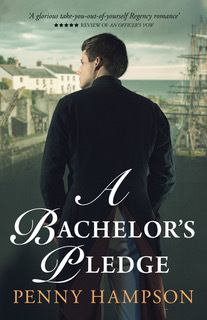
The woman who haunts his dreams
Secret agent Phil Cullen is upset when he discovers that the young woman he rescued from Mrs Newbody’s establishment has absconded from his housekeeper’s care without a word. Thinking he has been deceived, he resolves to forget about her… something easier said than done.
The man she wants to forget
Sophia Turner is horrified when she is duped into entering a notorious house of ill-repute. Then a handsome stranger comes to her aid. Desperate that no one learns of this scandalous episode, Sophia flees to the one friend she knows she can trust. With luck, she will never see her mysterious rescuer again.
But fate has other plans…
Months later, Phil is on the trail of an elusive French agent and Sophia is a respectable lady’s companion when fate again intervenes, taking their lives on a collision course.
Traitors, spies, and shameful family secrets - will these bring Sophia and Phil together… or drive them apart?
Heart-warming romance combined with action-filled adventure make this third book in Penny Hampson’s Gentleman Series a must-read for all lovers of classic Regency fiction.
Excerpt
The door rattled and Phil looked up. ‘Enter.’
He wondered what Mrs Dobson wanted now. The door moved on its hinges, and a head appeared round it – a head that most definitely did not belong to his housekeeper.
‘Mrs Dobson told me that I’d find you in here.’
Phil leapt to his feet. ‘Come in, Miss Hart. I trust you slept well? Have you breakfasted yet?’
Her gaze flickered over the room as she answered in softly modulated tones. ‘Thank you, yes, Mr Cullen, to both your questions. I’m afraid I have rather overslept. I’m usually up at first light.’ She was seemingly satisfied with the state of his study. Who indeed would not approve of such a well-ordered temple of industry, with its tidy desk with neat piles of papers and shelves of carefully arranged books? A smile lit up her face as she added, ‘Mrs Dobson was kind enough to bring me a tray when she woke me.’
Phil’s eyes widened momentarily. It wasn’t usual for his housekeeper to indulge his friends. It occurred to him that perhaps Mrs Dobson had just been making an exception for the higher sensibilities of such a charming female. Seeing Miss Hart in daylight, he had to admit that she looked very charming, especially when she smiled. Ordering his thoughts to behave, he smiled back at her.
‘Come and sit down, Miss Hart.’
He pulled out a chair for her and perched himself on the side of his desk. His gaze took in her dainty, reddened hands as she ran them over her skirts in a futile attempt to smooth the creases. Her dress, though shabby, was clean and well repaired. He noted that her dark chestnut hair, which he recalled as being rather unkempt the previous night, was now tied back in a neat bun. She raised her head, and for the first time he had an excellent view of her face. The pallor of her cheeks, which he attributed to her confinement by the despicable Mrs Newbody, contrasted with the dark lustre of her hair. Her striking blue eyes peered at him with a peculiar intensity and what he could only describe as a hint of anxiety. It was difficult for him to drag his own gaze away. In short, she was attractive – not a beauty, but definitely not a hardship to gaze upon.
‘I suppose I’d better decide what is to be done with you, Miss Hart.’ He knew he’d said the wrong thing when two spots of colour appeared in her cheeks.
‘I beg your pardon, sir?’ Her eyes flashed as she spoke, and he was taken by surprise at her tone: suppressed anger, if he was not mistaken. Though why should she be angry? He’d rescued her from that awful place, hadn’t he?
‘What is the matter, Miss Hart? I’m merely stating the obvious. I will need to come up with a place of safety for you. You can’t stay here.’ No, she definitely couldn’t stay. His was a bachelor household.
Her blue eyes narrowed. ‘I agree, Mr Cullen. But I will decide—’
He cut her off. He was in charge here. ‘What are you talking about? You’ve told me you don’t have any family. You do not know London. How can you possibly decide for yourself? Leave it to me, why don’t you?’ He disguised his irritation at her impertinence with the smile he’d withheld previously. A smile that usually got him out of tight spots. It didn’t work now. Miss Hart continued to glare at him. If looks could kill, he was sure he’d be lying dead on his Turkey carpet by now.
‘You probably think you know best, Mr Cullen, but really’ – she rolled her eyes – ‘do you expect me to wait mute until you decide where I should be sent to live the rest of my life? Be reasonable, please.’ Her words were coming out through clenched teeth, he could tell. He’d not expected her to argue. Indeed, he’d anticipated only gratitude for his help and thought she’d be ready to accept any suggestion he made.
This was the second character misjudgement he’d made in less than a week, and in his line of work it was something he should excel at. First the lad Jack and now Miss Hart. His jaw tightened. As a gentleman, it was his role to protect any female in his care. Why was she being obstinate when all he wanted to do was ensure her safety? His self-confidence dissolved in a mist of uncertainty. Playing for time, he pushed himself away from the desk and paced to the window, hands clenched by his sides. Gazing at the scene outside, he instinctively knew Miss Hart’s head had turned to follow him. Damn it! He could feel her eyes burning into the back of his skull.
He got his irritation under control and turned to face her. Yes, as expected, she had turned in her chair and was looking at him with those penetrating blue eyes. Her legs, he noticed, were outlined under her dress as she’d twisted in her seat – quite shapely legs, in fact. He dragged his eyes away and tried a different tack.
‘What would you like to do then, Miss Hart? Have you any ideas?’
The bright blue eyes widened momentarily before turning away. The once-pale cheeks were now delightfully flushed. ‘Erm… well, I haven’t a firm plan as yet.’ There was a lingering hint of defiance as her gaze returned to his. ‘But I’m sure I will think of something.’
He hid his smirk behind his hand as he pretended to clear his throat. ‘Well, why don’t you go and ponder on it in the drawing room while I carry on with some urgent business? I shouldn’t be above an hour. We can discuss the matter in more detail then. There should be some reading material there to keep you occupied should you get bored after you’ve come up with your plan.’
Miss Hart looked as if she was about to argue, and then her mouth clamped shut. She nodded her head and stood up, giving him a brief flash of her eyes from beneath lowered lashes before she turned to the door.
‘Very well, sir.’
By the slump of her shoulders as she departed the room, he had the satisfaction of knowing that she’d bowed to his superior knowledge of how things should be ordered. His world tilted back onto its axis.
Pick up your copy of
A Bachelor’s Pledge
Penny Hampson

Some time ago Penny Hampson decided to follow her passion for history by studying with the Open University. She graduated with honours and went on to complete a post-graduate degree.
Penny then landed her dream role, working in an environment where she was surrounded by rare books and historical manuscripts. Flash forward nineteen years, and the opportunity came along to indulge her other main passion – writing. Penny joined the New Writers’ Scheme of the Romantic Novelists’ Association and three years later published her debut novel, A Gentleman’s Promise, a historical mystery/romance and the first in The Gentlemen Series. An Officer’s Vow soon followed and the latest in the series is A Bachelor’s Pledge.
But never happy in a rut, Penny also writes contemporary suspense with paranormal and romantic elements. Her first book in this genre is The Unquiet Spirit, published earlier this year by Darkstroke.
Penny lives with her family in Oxfordshire, and when she is not writing, she enjoys reading, walking, swimming, and the odd gin and tonic (not all at the same time).
Connect with Penny:
Blog • Twitter • Facebook • Goodreads • Amazon Author Page.
#BookReview — Rebecca's Choice by Heidi Gallacher #HistoricalFiction #Victorian @HeidiGallacher

Rebecca's Choice
By Heidi Gallacher

‘Can Rebecca find the love and passion she craves within a Victorian world that seems to be conspiring against her?’
It is 1887 and Queen Victoria is on the throne. Businessman and meteorologist Geoffrey de Roussier is passionate about his weather station and railways, yet little of his passion seems to filter through to his shy, naïve young wife, Rebecca.
Following his tragic demise, Rebecca discovers that Geoffrey’s railroad investments have failed, leaving her penniless. As the past threatens to engulf her, Rebecca realises she has to make a choice. Gwilym Llewellyn, Geoffrey’s trusted friend and advisor, has an emotional debt to repay to Geoffrey and meets Rebecca to offer her a solution. Meanwhile Rebecca has found passion in another direction …
One man will save her from destitution, the other will offer her the love and excitement that she aches for. Whom will she choose?

"I believe that I am happy…"
Rebecca may not have the passion that her dear friend, Bessie, has with her husband, and lovemaking may be something of a chore, but there is the promise of children, and of course, there is Tredelerch – the most beautiful house in Wales.
She is lucky, for Geoffrey has always treated her with respect and kindness. She is content. Rebecca would have remained content probably for the rest of her life, never knowing anything about the secrets that shone from Bessie's eyes. Her future would have been predictable but comfortable.
However, when Geoffrey dies in a tragic accident, Rebecca is given the opportunity to experience true love for the first time in her life. Unfortunately, Geoffrey's investment ventures will come back to haunt her and threaten not only her future happiness but the fate of her beloved Tredelerch as well…
Told in the first person, Rebecca's Choice by Heidi Gallacher is the enthralling and unforgettable story of Rebecca de Roussier. This novel was almost effortless in the reading. The melodic rhythm to the narrative and the crystalline prose meant that the words swept over me like a gentle wave as it crashes upon the shore. This is a story that is utterly beguiling from the opening sentence to the very last full stop. It is also the kind of book that one could read over and over again and never tire of.
Oh, Rebecca — how I adored her, and what heartrending choices she had to make during this novel. Rebecca stole my heart because she is just so unfailingly honest with herself at all times. She is, in all ways, exceedingly likeable. There is no malice in her. She is not prone to fits of temper – she accepts everything that befalls her with a quiet dignity that fails to convey the very depths of the emotional distress that she is experiencing. Gallacher has presented a very touching portrait of a young woman who is endeavouring to discover who she really is.
Like the bridge in Swansea that would end up leading to nowhere, Gallacher has depicted a marriage that starts with hope but ends in indifference. And yet, there is no bitterness, no hatred and, surprisingly, no regret. Rebecca's relationship with her husband is one of security but also one of duty. It is a very Victorian marriage, and when it so tragically ends, it does so without any hysteria. There is sadness, but no sense of wretchedness, which I think says it all. It is, therefore, a complete contrast to Rebecca's parents' marriage, for they loved each other dearly, and when her father died, her mother was at a total loss. It isn't until Rebecca meets a former student of her husband's that she realises what she had been missing. Like a bird let out of a cage, Rebecca dares to spread her wings. But financial constraints and emotional obligations mean that she can never soar to the heights that she would like to. I thought Gallacher’s depiction of the marriage between Rebecca and Geoffrey was desperately tragic, not because it was abusive in any way, but because it did a grave disservice to both of them – they both deserved better.
The are several key turning moments in this novel, but one of the pivotal discoveries is that of the turret-room at, Tredelerch. The turret-room is something of an awakening for Rebecca. Rebecca knows from the very beginning that her marriage is missing the spark that she sees in her friend's eyes. Her marriage to Geoffrey is more of a duty on both sides. Geoffrey wants a wife and family, but he has no intention of falling in love with Rebecca – which in itself is a tragedy for Rebecca has love to spare. Rebecca convinces herself that she is content. But the turret-room allows Rebecca to glimpse into her husband's past, and she realises that he does indeed know what passion is, and he could show her what she craves. The discovery of the turret-room is a turning point in their relationship – and it comes to symbolise everything that is wrong in their marriage. She is married to a man who will never give her what her heart craves and yet, she hides her disappointment and her frustration behind a gracefully heroic façade.
Through Rebecca's exclusion of both personal finances relating to the home and the broader financial implications of her husband's business ventures, Gallacher explores the late Victorian society structure and in particular the role of women. Rebecca is, as society dictated, subservient to her husband in all things. She does not have a voice, and nor is she included in any of her husband's affairs, which leads to some very difficult and heart-breaking decisions later on in this novel. Rebecca is constrained by the time she lives in – her future can only be secured through wealth, and this dictates every decision that Rebecca makes. I thought Gallacher explored the role of women in the Victorian era with a sensitivity and an understanding of what it must have been like to live during this time. I thought Gallacher’s depiction of the moment Rebecca discovered the truth was written with an emphatic understanding of her protagonist's plight.
Throughout this novel, Rebecca is subconsciously searching for something in her life that she doesn't understand. As a Victorian woman, Rebecca wants stability, security and a home. Tredelerch defines the very idea of what ‘home’ is for her. It takes the entire length of this novel for Rebecca to realise that home is not necessarily made of bricks and mortar, and that it can be found in a loving glance, a gentle touch of hands.
The historical detailing of this book is staggering. Gallacher has a keen sense of time and place. The hours that have gone into researching this book must have been extensive, but the sacrifice has undoubtedly paid off. When Historical Fiction is written in such a way, there is no such thing as too much!
If you are looking for a tender page-turning story set in Wales in the late 19th Century, then look no further. Rebecca's Choice by Heidi Gallacher is a real treat for any reader who enjoys quality Historical Fiction.
I Highly Recommend.
Review by Mary Anne Yarde.
The Coffee Pot Book Club.
Pick up your copy of
Rebecca's Choice
Add Rebecca’s Choice to your ‘to-read’ list on

Heidi Gallacher

Heidi Gallacher was born in London in the Sixties. She grew up in Cardiff and Swansea, South Wales. She jumped at the chance to move to Paris in her twenties to learn a new language and culture.
Following the arrival of her first son she moved to sunny Switzerland where she has lived ever since. She completed her Masters in Creative Writing in 2018 and her first short story Changing Places was published in September of that year. Rebecca's Choice is her first novel.
When not writing, Heidi writes and performs music, swims in Lake Zürich and fundraises for Africa.
Connect with Heidi:
Twitter • Facebook • Instagram.
Welcome to Day #3 of the blog tour for The Sign of the Blood (A Dangerous Emperor, Book #1) by Laurence O'Bryan #BlogTour #BookReview @LPOBryan @SylvDotNet

The Sign of the Blood
(A Dangerous Emperor, Book #1)
By Laurence O'Bryan
The first Christian emperor faces ruthless enemies on his journey to power.
Cool mist settles over the legion advancing toward the Persian army. Constantine, the son of an emperor, the Roman officer leading the attack, tells his men to halt - something is wrong.
Before long, the battle rages. He frees a slave named Juliana. She is half Persian and half Roman. As they are pursued to Britannia over land and sea, he learns that she can see the future - his future.
It is 306A.D., long before Constantine the Great converted to Christianity and became the first Christian emperor.
To ensure he survives, he must eliminate his enemies. But who must die first? The priestess, Sybellina, who joined them in Rome and practices dark and seductive magic? Or the brutal legion commanders who surround his father? Or, as Juliana suspects, are those who want him dead even closer?
A gripping historical novel about Constantine’s bloody rise to power, the woman who helped him, and the real reason he supported a persecuted Christian minority, a decision which changed the world into the one we know.
Today we are stopping over on Sylv.Net for a sneak-peek between the covers of The Sign of the Blood.
Click HERE!
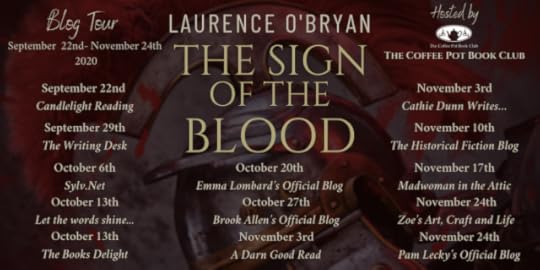
Welcome to Day #1 of the blog tour for A Feigned Madness by Tonya Mitchell #HistoricalFiction #BlogTour #CoffeePotBookClub @tremmitchell @Beatric09625662

A Feigned Madness
By Tonya Mitchell
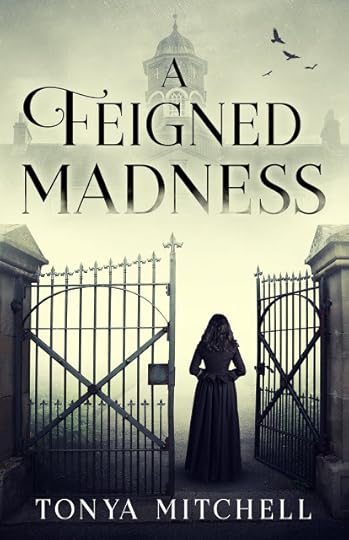
The insane asylum on Blackwell’s Island is a human rat trap. It is easy to get in, but once there it is impossible to get out. —Nellie Bly
Elizabeth Cochrane has a secret.
She isn’t the madwoman with amnesia the doctors and inmates at Blackwell’s Asylum think she is.
In truth, she’s working undercover for the New York World. When the managing editor refuses to hire her because she’s a woman, Elizabeth strikes a deal: in exchange for a job, she’ll impersonate a lunatic to expose a local asylum’s abuses.
When she arrives at the asylum, Elizabeth realizes she must make a decision—is she there merely to bear witness, or to intervene on behalf of the abused inmates? Can she interfere without blowing her cover? As the superintendent of the asylum grows increasingly suspicious, Elizabeth knows her scheme—and her dream of becoming a journalist in New York—is in jeopardy.
A Feigned Madness is a meticulously researched, fictionalized account of the woman who would come to be known as daredevil reporter Nellie Bly. At a time of cutthroat journalism, when newspapers battled for readers at any cost, Bly emerged as one of the first to break through the gender barrier—a woman who would, through her daring exploits, forge a trail for women fighting for their place in the world.
The first stop of our tour is over over on the fabulous Candlelight Reading for an exclusive interview with Tonya Mitchell.
Click HERE!

October 5, 2020
Join me in conversation with the authors of Doorways to the Past #HistoricalFiction #AuthorInterview #shortstories @OcelotPress

Join me in Conversation with the authors of
Doorways to the Past
Historical Short Stories

Journey through time…
…with our collection of short stories and character interviews for readers who enjoy discovering the past through fiction.
Follow us from Roman times across the Dark and Middle Ages, through the Renaissance and the Age of Enlightenment to World War I, and up to the present day. Your voyage through history takes you from Scotland to England, and across the seas to France, Corsica and Italy.
You’ll meet an array of remarkable men and women from servants to monarchs, soldiers to rebels. Witness their hopes, fears, joys and setbacks in often perilous or mysterious situations.
Step with us through Doorways to the Past and be transported back in time!

Mary Anne: Thank you so much for taking time out of your day to chat with us about your new book. Before we begin would you mind introducing yourself.
 Ocelot Press: Ocelot Press is a collective of experienced authors – Sue Barnard, Vanessa Couchman, Cathie Dunn, Nancy Jardine, Yvonne Marjot and Jennifer C. Wilson. In our first two years, we’ve published over 25 books, mainly in historical fiction or featuring historical aspects.
Ocelot Press: Ocelot Press is a collective of experienced authors – Sue Barnard, Vanessa Couchman, Cathie Dunn, Nancy Jardine, Yvonne Marjot and Jennifer C. Wilson. In our first two years, we’ve published over 25 books, mainly in historical fiction or featuring historical aspects.
Mary Anne: How did the anthology come about?
Ocelot Press: To celebrate this milestone, we wanted to showcase our writing, so we created an anthology of brand-new work, tying in with our Ocelot Press novels.
The result is Doorways to the Past, which comprises short stories and character interviews. These allow us to share characters who don’t all play the lead role in our already published novels, or to create entirely new episodes in a character’s life.

Doorways to the Past spans almost 2,000 years, from Roman Britain to the present day. It includes trips back and forth over the Channel, visiting mainland France, Italy and Corsica on the way. Yvonne Marjot wrote the foreword.
Mary Anne: What inspired you to write your contribution?
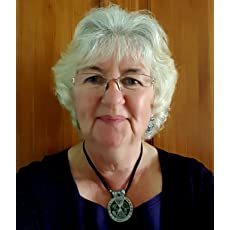
Historical fiction set in Roman Scotland is rare. In my Celtic Fervour Series, I’ve depicted the devastation caused to local Brythonic tribes of northern Britain when the Ancient Roman legions invaded in 1st century AD – each book featuring different Garrigill Clan members, with some Ancient Roman characters providing a viewpoint balance.
Cathie Dunn:
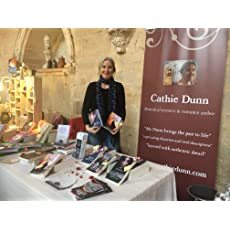
On Thin Ice, my short story in Doorways to the Past, shows the Empress Matilda’s dramatic flight – in the middle of a snowstorm – from Oxford Castle besieged by King Stephen. Legend or fact, it makes for a great adventure!
Jennifer C. Wilson:

I’ve always been fascinated by the border reivers, families of raiders along the England-Scotland border from the 1400s-1600s. Feuds could last lifetimes and beyond, with theft, kidnap and murder being commonplace. A hard life, which hasn’t featured in much historical fiction.
Sue Barnard:
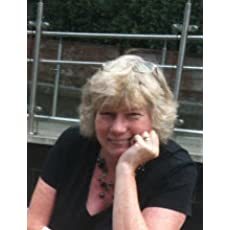
The Ghostly Father was the result of the prompt “Write the book you want to read”. I’ve always loved the story of Romeo & Juliet but wished it didn’t end so tragically. The book I wanted to read was the version in which the young lovers get the happy ending they deserve. I asked myself, “Why should there not be such a book?” And answered, “If it doesn’t already exist, write it.”

I am a great fan of Corsica, the stunning French Mediterranean island, which inspired my Tales of Corsica series. The Corsican Widow takes place during the 18th century and is loosely based on a fragment from a contemporary history.
Mary Anne: How did you come up with your setting and your characters?
Cathie Dunn:

I find the era now known as The Anarchy, the medieval English civil war that raged between 1135 and 1154, utterly fascinating. The Empress Matilda, King Henry I’s designated heir to the throne of England, had to watch helplessly as her cousin Stephen usurped the throne.
Jennifer C. Wilson:

The Raided Heart was originally set in the highlands, but moving to Hexham, and rediscovering the reivers, it seemed obvious to set it in their world. Although Long Ridge, Lyneholm and the characters family, the overall setting was based around the Tyne valley, where the scenery hasn’t changed that much.
Sue Barnard:

The setting (15th/16th-century Verona) and the characters (Romeo, Juliet and the Friar) were ready-made, but it was fascinating to delve deeper into their hearts and minds – especially the Friar (the eponymous Ghostly Father), who also appears in Doorways to the Past. I’ve often wondered why, in Shakespeare’s play, he behaved as he did, and by giving him what I hope is an interesting and thought-provoking backstory, I’ve tried to offer possible answers.

The protagonist, Valeria, must marry a wealthy man she doesn’t know. Far from the quiet life she expects, Valeria confronts a series of disasters, and spends some years in the French port of Marseille. She is befriended by a young Florentine woman, Francesca, who lands up in Marseille after her family disowns her. Francesca took on a life of her own, so I had to write her story, Astray in Marseille, for our anthology.
Mary Anne: What is it about the period of history that you write about that you find so fascinating?

I adore researching Roman Britain, even though it relies heavily on dynamic archaeology to fill in historical details. However, this was useful for creating my story The Pinnacle of Achievement and the interview for Doorways to The Past. Ruoridh of Garrigill gets a chance to shine and my interview with Judicial Legate Gaius Salvius Liberalis, a friend of General Gaius Iulius Agricola, allowed me to delve further into the minds of both of those Ancient Roman characters.
Cathie Dunn:

The ‘chess game’ between Matilda and Stephen is interesting to read about. At times, one or the other party emerged victorious, only to lose their advantage within weeks or months, as nobles switched sides back and forth. I’d highly recommend history buffs to read up about it.
Jennifer C. Wilson:

It was great research, spending time in the countryside, visiting places like Hexham Gaol to find out more about the reivers’ lives, and getting to know Judd Mathers, one of my favourite characters from The Raided Heart. Judd’s Story appears in our anthology.
Mary Anne: What are you currently working on?

My current writing includes an associated short story and a prequel to the Celtic Fervour Series. Book 1 of a family saga beginning in 1850s Scotland is also on-going. Ancestry investigations are providing useful background ideas for this and, unlike Roman Britain research, there are gazillions of prime sources available for the Victorian era!
Cathie Dunn:
I’ve just completed The Shadows of Versailles, a historical novel set during the infamous Affair of the Poisons in 1670s France. Young Fleur finds herself thrown into the glittering world of Versailles but falls for the charms and sweet words of a handsome courtier, with ruinous consequences. The Shadows of Versailles is the first standalone tale in a new series.
Jennifer C. Wilson:

I’m working on another border reiver historical romance, but this time, on the Scottish side of the line.
Sue Barnard:

My next Ocelot title will be Never on Saturday – a timeslip romance novella with a hint of mystery and a touch of the paranormal. It’s set partly in medieval France and partly in present-day North Wales and is based on an old French legend.
Vanessa Couchman:

I’m working on Book 2 (Intermezzo, set in World War I) of a trilogy set in France 1897-1945, centred on Marie-Thérèse, who becomes an opera singer. In the Tales of Corsica series, I’m writing a World War II sequel to The House at Zaronza.

Pick up your copy of
Doorways to the Past
Amazon UK • Amazon USAdd Doorways to the Past to your 'to-read' list on
 Goodreads
Goodreads
Ocelot Press

Ocelot Press is an independent co-operative of a small group of Crooked Cat Books authors (past and present). Our members support one another in editing, producing and marketing our books, while retaining their independence and control as authors.
Ocelot Press books cover a range of genres, with a focus on historical fiction (including historical mystery and paranormal), romance and fantasy.
Connect with Ocelot Press:
Book Title: Doorways to the Past: Historical Short Stories
Authors: Nancy Jardine, Cathie Dunn, Jennifer C. Wilson, Sue Barnard, Vanessa Couchman
Publication Date: July 30th 2020
Publisher: Ocelot Press
Page Length: 121 Pages
Genre: Historical Fiction / Short Stories

#BookReview — His Castilian Hawk (The Castilian Saga, Book 1) by Anna Belfrage #Medieval #HistoricalRomance
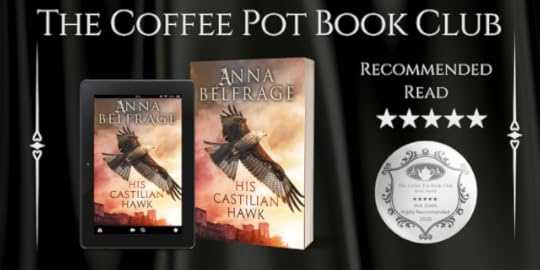
His Castilian Hawk
(The Castilian Saga, Book 1)
By Anna Belfrage

For bastard-born Robert FitzStephan, being given Eleanor d’Outremer in marriage is an honour. For Eleanor, this forced wedding is anything but a fairy tale.
Robert FitzStephan has served Edward Longshanks loyally since the age of twelve. Now he is riding with his king to once and for all bring Wales under English control.
Eleanor d’Outremer—Noor to family—lost her Castilian mother as a child and is left entirely alone when her father and brother are killed. When ordered to wed the unknown Robert FitzStephan, she has no choice but to comply.
Two strangers in a marriage bed is not easy. Things are further complicated by Noor’s blood-ties to the Welsh princes and by covetous Edith who has warmed Robert’s bed for years.
Robert’s new wife may be young and innocent, but he is soon to discover that not only is she spirited and proud, she is also brave. Because when Wales lies gasping and Edward I exacts terrible justice on the last prince and his children, Noor is determined to save at least one member of the House of Aberffraw from the English king.
Will years of ingrained service have Robert standing with his king or will he follow his heart and protect his wife, his beautiful and fierce Castilian hawk?

“…Sir Ralph had but one son and one daughter. The son lies at your feet”—he pointed, but Robert chose not to look—“and so the daughter is converted into an heiress.” He frowned. “Not much of a castle is Orton Manor, but I want it in the hands of a man I trust.” He nodded at Robert. “You will return the bodies to the little lady, and then you’ll wed her.”
King Edward must surely be jesting. Robert FitzStephan had no notion of marrying, let alone marrying a woman of wealth. He may be in favour with the king, but he is a bastard son, and a bastard son does not hope to rise to such lofty heights. But Edward is serious, and so Robert must ride to Orton Manor.
Eleanor d'Outremer had watched her father and her brother ride off to battle, and instead of welcoming their safe return, she is presented with her future husband and two corpses. There is to be no delay, no waiting — they are to be married immediately. King Edward demands it and she must obey. But there are those who would see her marriage to Robert fail, and they will stop at nothing in their quest to do so…
A majestic country, drenched in the blood of its kinsmen is the setting of Anna Belfrage's fabulous new book, His Castilian Hawk (The Castilian Saga, Book 1). Belfrage always writes emotionally compelling stories, and His Castilian Hawk is no exception to this rule. I was expecting a lot from this book, and I got everything I anticipated and then some. Belfrage has brought this era gloriously back to life.
A Welshman knows how to die well, for Edward I had given them ample opportunity to practice, and while the blood of their king stained the cobblestones at Shrewsbury, they would make sure that the threat from the dragon would remain at the forefront of Edward's mind. Edward's brutality towards the Welsh is often overshadowed in history by his hammering of the Scots, and therefore few would have heard of Dafydd ap Gruffydd, let alone know who he was and what he did — I am sure such knowledge would have pleased Edward immensely. Belfrage has done much to rectify this with her depiction of the Conquest of Wales, and although this story is told from the perspective of Edward's camp, the realities of the war and what the people of Wales endured is evident in every page. At times, the narrative makes for a harrowing read, and yet it is one that is impossible to turn away from. This is the story of a proud people, brought to their knees. It is the story of a cornered dragon who would fight on until that final bitter end.
Usually, I would start a review by looking at the protagonists of the novel, but in this book’s case, I feel that I need to start with the antagonists. When a story is set in the camp of a notoriously uncompromising king, it is sometimes difficult to get a grasp on who the real enemy is. The English army is in Wales because of the rebellion, and yet it is the actions and reactions of Edward that drive the narrative of this story forward. As in life, Belfrage has given her readers an Edward who is on the one hand a deeply pious man, devoted to his wife, and then on the other is quite content to lock up children in cages and to prolong the execution of a man who was, if nothing else, a worthy opponent. What Edward never grasped in this novel, as he didn't in life, was the spirits of those who opposed him were not so easily crushed and instead of achieving a nation’s submission, he earned a nation’s resentment. It isn't easy to write a balanced account of Edward, which weighs up both the good and the bad, but Belfrage has done so most admirably. Edward is not a mindless monster in this novel, and he does show compassion, where compassion allows, but neither does Belfrage stray away from the historical fact of what this man did to the Welsh and how he went about doing it. I thought Edward's depiction was fabulous.
It is rather strange that history celebrates the men, whereas the women are brushed over as if their contributions, their lives, were inferior and of no consequence. Belfrage has tried to rectify this gross negligence by presenting her readers with a very realistic portrayal of Eleanor of Castile, Edward's beloved wife. Belfrage has chosen to depict Eleanor as a very knowledgeable woman, she is politically astute, and she knows how to play this game of kingdom and thrones. She is also a very single-minded woman — Eleanor will not be parted from her husband, if he is going to Wales then so is she, which all sounds terribly romantic and, of course, it is. But Belfrage also touches upon Eleanor's ruthless acquisition of lands and her somewhat fluctuant temperament which meant that she was a woman to be feared, rather than respected. I enjoyed reading about this controversial figure who lived in the shadow of her husband, and although at times her actions appalled me, there were also moments when I found myself rather liking Edward's queen.
Robert FitzStephan, the man who saved King Edward's life and then found himself wedded to a stranger. Robert cannot say no to his king, even though he had no thought of marrying, nor could he have predicted the chain of events that would follow his marriage. Born a bastard, Robert is fortunate to have won the king's favour. His loyalty, therefore, to King Edward is absolute, but that does not mean he agrees with every order – although, he will always do as he is told. At times, Robert is very conflicted, as anyone decent would be when faced with such a deplorable task, and because of this conflict and this uncertainty, he comes across as very real in the telling. His relationship with Eleanor (Noor) does not start well, and he does things that will come back to haunt both of them, but once he realises what a gift he has been given in Eleanor, his attitude towards her changes, and it is almost like a lightbulb moment when he really sees her for the first time. I thought Robert's depiction was brilliant.
Likewise, Eleanor’s struggle with who she is, what she has seen, and what she knows, came across very realistically. Eleanor is a young woman who is very alone in the world. She lost her mother at an early age, and the war has taken her father and brother. She has kin, but she does not know them. Eleanor is a very insecure young woman, but through the course of this novel there are hints of the woman that she will become. I cannot wait to catch up with her again in the second book of what promises to be an enthralling series.
His Castilian Hawk is a very sensual book, where passion between two strangers forced to marry becomes a deep and unquenchable love. The era this book is set in does not lend itself to romance, but there are still scenes in this novel that are incredibly romantic. The relationship between Robert and Eleanor is one that is, on the face of it, fated to fail. However, as this novel progresses, these two protagonists come to realise that the only way they can survive is if they cling onto each other. The passionate scenes remind the reader that this book is primarily about Robert and Eleanor’s growing love for each other.
Anna Belfrage has really outdone herself in His Castilian Hawk (The Castilian Saga, Book 1). It is a book that deserves to be read again and again and again. A sensational treat for lovers of quality Medieval Historical Romance.
I Highly Recommend.
Review by Mary Anne Yarde
The Coffee Pot Book Club.
Pick up your copy of
His Castilian Hawk
Anna Belfrage

Had Anna been allowed to choose, she’d have become a time-traveller. As this was impossible, she became a financial professional with two absorbing interests: history and writing. Anna has authored the acclaimed time travelling series The Graham Saga, set in 17th century Scotland and Maryland, as well as the equally acclaimed medieval series The King’s Greatest Enemy which is set in 14th century England.
More recently, Anna has published The Wanderer, a fast-paced contemporary romantic suspense trilogy with paranormal and time-slip ingredients. While she loved stepping out of her comfort zone (and will likely do so again ) she is delighted to be back in medieval times in her September 2020 release, His Castilian Hawk. Set against the complications of Edward I’s invasion of Wales, His Castilian Hawk is a story of loyalty, integrity—and love.
Connect with Anna:
Website • Twitter • Facebook • Amazon Author Page.
Publication Date: 28th September 2020
Publisher: Timelight Press
Page Length: 355 Pages
Genre: Historical Fiction / Historical Romance
The Coffee Pot Book Club
...more
- Mary Anne Yarde's profile
- 159 followers


